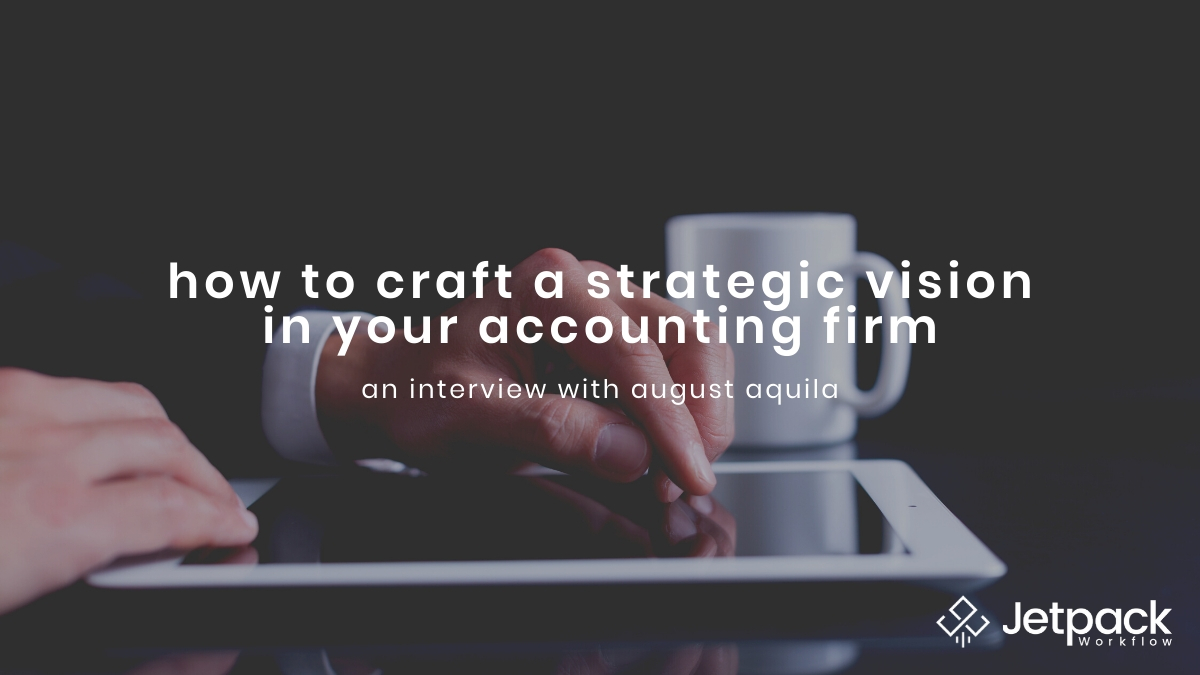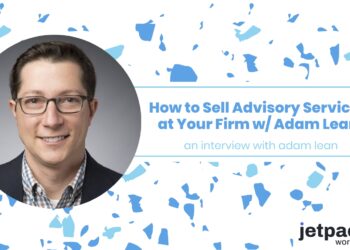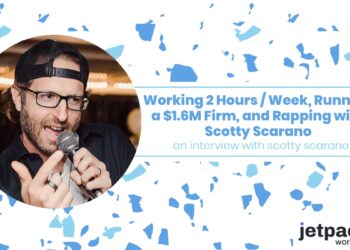How To Craft A Strategic Vision In Your Accounting Firm

August Aquila, Founder of Aquila and Top 100 most influential people in the accounting industry, is an expert to help craft a strategic vision for your accounting firm.
He’s worked with the likes of American Express and firms like yours to advise on building a company not just for today, but for the future.
In this episode of Growing Your Firm Podcast, David Cristello and August Aquila discuss:
+ Mistakes made when you craft a strategic vision
+ How to handle partner relations
+ How to implement and manage change and innovation
+ and much more
ADDITIONAL LINKS:
Aquila Global Advisors: http://www.aquilaadvisors.com/
Leadership at its Strongest (book): https://store.cpatrendlines.com/shop/leadership-at-its-strongest/
Connect with August on Linkedin: https://www.linkedin.com/in/augustaquila
What Makes A Successful Leader Good At What They Do?
August Aquila, a leading consultant who specializes in succession planning, mergers & acquisitions, compensation plan design, and general partnership issues, has seen what works with accounting firms to craft a strategic vision.
He began his company when he saw a shortage of leaders in the accounting profession and in corporate America, in general. Unsure of what makes a great leader lead a great company, he launched his advisory practice. He interviewed 175 managing partners in the United States, Canada and England asking “what makes a successful leader good at what they do?”
What the conclusion boiled down to was this —> A good leader has direction. Mentally, a team is behind you in your thinking.
The tricky part you run into as you craft a strategic vision, is getting buy-in from your team. Never will your team be as excited as you are for your strategic vision. But, you must gain commitment, especially from your top team members and executives. To do this, you must be relentless.
In other words, you must remind them again, again, and again of your strategic vision until it’s ingrained.
How To Get Your Team To Execute Your Strategic Vision:
By far, the main reason the strategic vision in every accounting firm doesn’t gain traction is simple —> Client work bogs down any progress.
The easy decision for your future growth remains working on client work. You spend your days putting out fires rather than planning on what will come the next 6-12 months. That’s not hard to comprehend.
Client work rains down immediate rewards with billable hours and recognition for work. Planning for the future won’t bear fruit for (sometimes) years.
You will need to be proactive in implementing steps to take in order to see your strategic vision come to fruition.
FIRST: Get activities broken down into 30-45 minute chunks each week, August recommends. That way, an executive can work on it in bite-size portions. They could put in 30 minutes off-the-clock on Saturday working on their vision. They could come in 30 minutes early on a Wednesday and work on the strategic vision.
SECOND: Schedule just a little bit at a time and have monthly meetings on progress. In essence, this is just 2 hours a month they need to carve out. They could do the 2 hours all at once if they wished.
At the strategic meetings, ask “What’s working?”, “What needs improving?.”
Unfortunately, many executives have trouble saying “I need help.” You need to draw it out of them.
DAVID’S TIP: If you start with just “tactics,” you falter because there’s no meat behind the tactics. When you have a strategic vision executives believe on and work on, you can implement “tactics” well.
Craft A Strategic Vision:
The first step to craft a strategic vision, have a vision…
That sounds obvious, so let’s look at actual questions August asks his clients:
- What do you want the firm to become over a period of time?
- What are you trying to achieve or a period of time?
Notice, the “period of time” piece. This is because your vision must be in the future. Not what you’re doing now.
For some accounting firms, they wish to be seen as more than just ‘tax preppers’ or ‘bean counters.’ Rather, they’d like to be known as business advisors. The first step to craft a strategic vision in this area, think about “How will clients perceive you in the future as business advisors?”
Compare that to how they perceive you now. Perception is reality. If they only see you as tax preparers, you must plan steps to change that perception with implementing other services and ideas to them.
You must pull out the characters and behaviors of a business advisor to be seen as a business advisor. It doesn’t happen naturally, nor overnight.
4 Pillars To Success:
August, at the end of the podcast, laid out 4 pillars of success for any leader in an accounting firm:
- Set direction —> Know where you’re going —> Know HOW you’re going to get there
- Gain commitment —> Reiterate the vision over and over
- Execute —> Do what you say you’re going to do
- Live your values —> This takes time, but set how and why you conduct yourself and push it out to the team and every new hire.
Leaders need to see their roles as “stewards.” Take care of the organization as you would an asset. Protect it. Nurture it. Grow it.
Your strategic vision must include a direction. August recommends, especially for this, to develop a niche.
Think about “What is a core client for my firm?” There will be a lot of clients who won’t meet your definition of a core client. You don’t want to take those on. In the beginning, you take any client who can keep your lights on. As you learn to walk, you need to trim the clients who don’t fit your strategic vision.
Only then can you grow.





